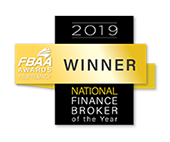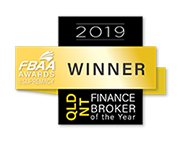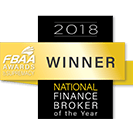First Home Buyer Hub Buy at Auction Understand the auction mindset
Understand the auction mindset
Real estate agents put properties to auction for two primary reasons. The first is to try to sell the property as quickly as possible. A property for sale at auction that has just been listed on the market involves three weeks of heavy campaigning with the auction taking place in the fourth week.
The second reason a real estate agent puts a property to auction is to try to flush out buyers by putting that four-week deadline on the property, and create a sense of competition to increase the sale price of the property.
Auctions are very common in rising property markets, where there is increased competition and situations where there are multiple buyers for the one property. For this reason, it is critical that at an auction you set a budget beforehand and stick with it. If you are a success at auction and win, you will have to settle the contract even if you can’t afford it. If the property fails to meet the reserve price it is passed in, which means it won’t be sold at auction. The good news is if you were the highest bidder at auction you have the first opportunity to negotiate with the seller.

Auctions in Brisbane are becoming increasingly common.
In Queensland to be eligible to buy at auction, you need to be a registered bidder. In order to register you need to provide the selling real estate agent with a copy of your Australian driver’s licence around 10 – 15 minutes before the auction is set to take place. In some other states like Victoria and Western Australia, there is no requirement for you to make yourself known to the auctioneer before sticking your hand in the air!
The real estate agent will give you a unique bidder’s number (a paddle with a number at the top), which you can hold up during the auction to make an offer to buy the property.
If the property meets the reserve price, and you are the highest bidder at the fall of the auctioneer’s hammer, then you have now bought a property!
When buying at auction there is no cooling-off period, meaning if you buy the property it is final and you cannot get out of it. The cooling-off period also does not apply if you sign a contract on the property within two days of an unsuccessful auction of that property, or after being a registered bidder on the auction. So be careful; if you are unsuccessful at auction but end up signing a contract of sale after you may have waived your cooling-off period!
There are a few terms that you may come across during the auction process. Here’s a quick explanation so you can be confident that you know what you’re talking about if these terms are mentioned:
- ☑️Reserve price: This is the lowest price that the seller will accept at auction. The seller sets the reserve price with the auctioneer before the auction in writing, and while the real estate agent or auctioneer isn’t allowed to tell you the reserve price they can say during the auction if the reserve price has been met.
- ☑️The successful bidder: The successful bidder is the person who meets the property’s reserve price and wins at auction. If you are the successful bidder you need to sign the contract immediately, which is legally binding. There are serious legal consequences if you cannot settle the property on time including the full price of the property, the cost of re-auctioning the property and any shortfall on your office and the winning bid at the next auction.
- ☑️Vendor bids: During auctions in Queensland an auctioneer can accept a seller (or vendor) bid to increase the current bid all the way up to the reserve price. Prior to the current bid reaching the reserve price, the auctioneer can bid on behalf of the seller, or accept bids from the seller (or their representing real estate agent). This is a way to keep the auction moving, and increase the bid closer to the reserve price—if you hear a vendor bid you know the reserve price has not been reached yet.
- ☑️Dummy bids: A dummy bid is a way to increase the bidding during an auction by the seller, a family member or friend, or any other individual that isn’t a serious buyer. In Queensland, and across Australia, dummy bids are illegal and should be reported as they artificially inflate the price of the property at auction.





 Start again
Start again










